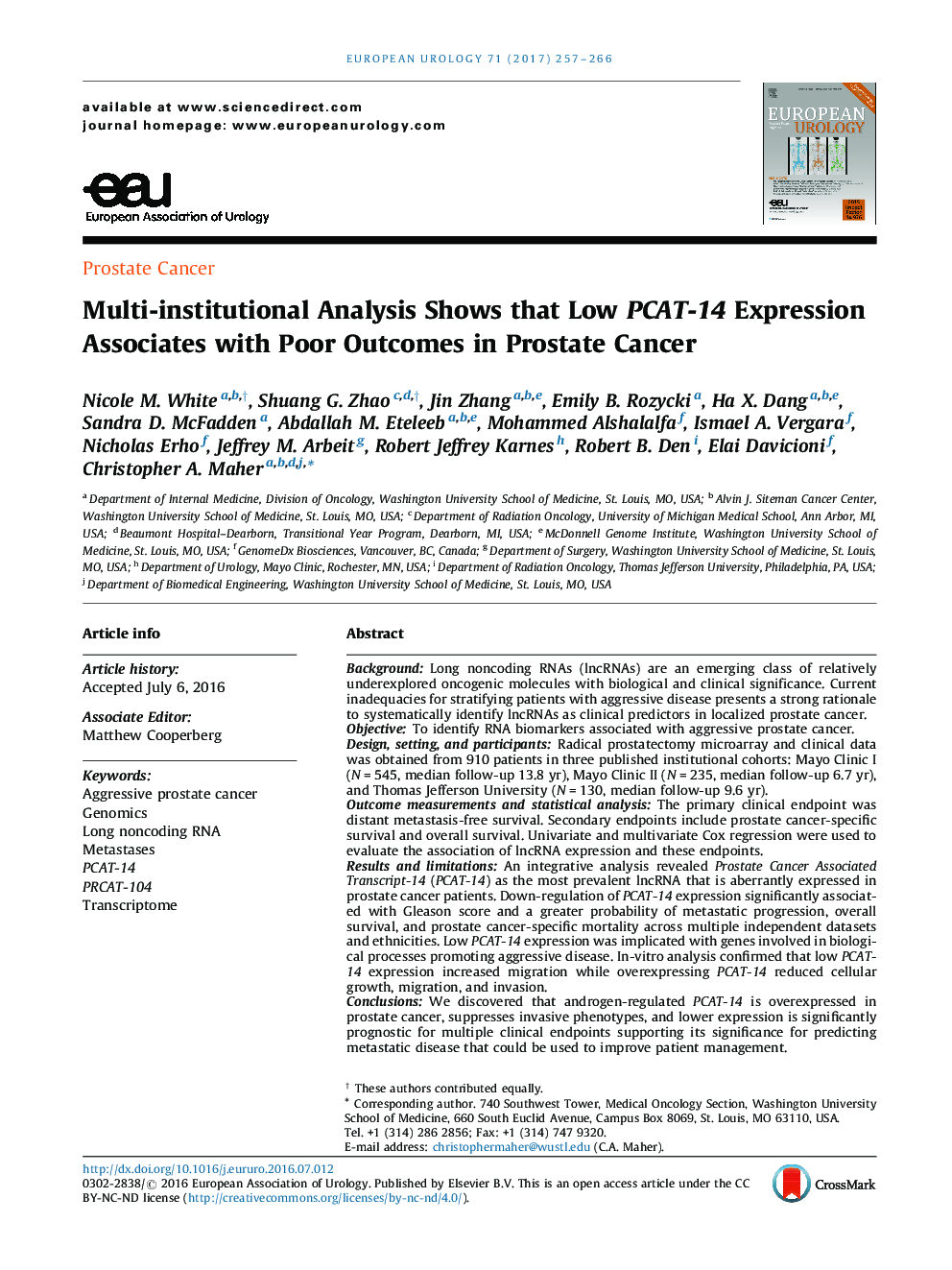| کد مقاله | کد نشریه | سال انتشار | مقاله انگلیسی | نسخه تمام متن |
|---|---|---|---|---|
| 5689332 | 1409986 | 2017 | 10 صفحه PDF | دانلود رایگان |

BackgroundLong noncoding RNAs (lncRNAs) are an emerging class of relatively underexplored oncogenic molecules with biological and clinical significance. Current inadequacies for stratifying patients with aggressive disease presents a strong rationale to systematically identify lncRNAs as clinical predictors in localized prostate cancer.ObjectiveTo identify RNA biomarkers associated with aggressive prostate cancer.Design, setting, and participantsRadical prostatectomy microarray and clinical data was obtained from 910 patients in three published institutional cohorts: Mayo Clinic I (NÂ =Â 545, median follow-up 13.8 yr), Mayo Clinic II (NÂ =Â 235, median follow-up 6.7 yr), and Thomas Jefferson University (NÂ =Â 130, median follow-up 9.6 yr).Outcome measurements and statistical analysisThe primary clinical endpoint was distant metastasis-free survival. Secondary endpoints include prostate cancer-specific survival and overall survival. Univariate and multivariate Cox regression were used to evaluate the association of lncRNA expression and these endpoints.Results and limitationsAn integrative analysis revealed Prostate Cancer Associated Transcript-14 (PCAT-14) as the most prevalent lncRNA that is aberrantly expressed in prostate cancer patients. Down-regulation of PCAT-14 expression significantly associated with Gleason score and a greater probability of metastatic progression, overall survival, and prostate cancer-specific mortality across multiple independent datasets and ethnicities. Low PCAT-14 expression was implicated with genes involved in biological processes promoting aggressive disease. In-vitro analysis confirmed that low PCAT-14 expression increased migration while overexpressing PCAT-14 reduced cellular growth, migration, and invasion.ConclusionsWe discovered that androgen-regulated PCAT-14 is overexpressed in prostate cancer, suppresses invasive phenotypes, and lower expression is significantly prognostic for multiple clinical endpoints supporting its significance for predicting metastatic disease that could be used to improve patient management.Patient summaryWe discovered that aberrant prostate cancer associated transcript-14 expression during prostate cancer progression is prevalent across cancer patients. Prostate cancer associated transcript-14 is also prognostic for metastatic disease and survival highlighting its importance for stratifying patients that could benefit from treatment intensification.
Journal: European Urology - Volume 71, Issue 2, February 2017, Pages 257-266